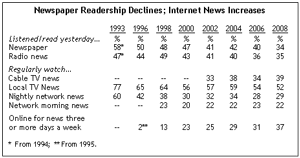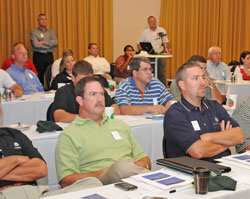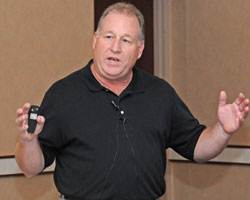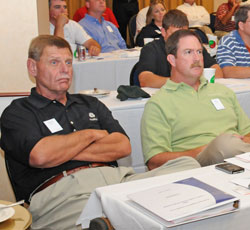 New media, social media, whatever. On August 6, I participated in the first Aggie Lance Social Media Tele-Seminar. Besides company President, Mark Jewell, I was joined by John Blue, Truffle Media Networks and Liza Markle, National FFA.
New media, social media, whatever. On August 6, I participated in the first Aggie Lance Social Media Tele-Seminar. Besides company President, Mark Jewell, I was joined by John Blue, Truffle Media Networks and Liza Markle, National FFA.
We had a lively discussion, talking about using new media in agricultural communications, including why you should be doing it now. You can download and listen to the Tele-Seminar with this link. (wma file) I’ve already discussed making these mp3’s btw.
Perhaps you’re still wondering if your company or organization should be getting involved in new media. One of our recommendations is to start participating yourself (Facebook, LinkedIn, Blog, YouTube) to become personally familiar with it. I just saw some interesting new data on how Inc. 500 companies are making use of social media. Here’s a chart comparing their use in 2007 (green) with 2008 (blue). You can click on the image to see a bigger version of it.

Research Highlights:
* Four out of five companies in the Inc 500 rate social media technology as important or very important;
* 21% of the companies are podcasting and 39% blogging;
* The number of companies blogging and podcasting has doubled in the last year;
* The Inc. 500 are adopting new media technologies much quicker than Fortune 500 companies.
The research suggests that companies that are using social media & new media technologies are growing faster than other companies.
The research was done by the University of Massachusetts Dartmouth Center for Marketing Research. You can download the study, which I recommend.
Via Podcasting News.


 Here’s an interesting announcement.
Here’s an interesting announcement. 

 New media, social media, whatever. On August 6, I participated in the first
New media, social media, whatever. On August 6, I participated in the first 
 Liza Teixeira is the new Public Relations Specialist for the
Liza Teixeira is the new Public Relations Specialist for the  One of the key people involved with the Boehringer Ingelheim Animal Health Seminar was Gary Robertson. He’s the brand manager for Ingelvac MycoFLEX. You can actually see him sitting in the back left part of this picture during the presentations.
One of the key people involved with the Boehringer Ingelheim Animal Health Seminar was Gary Robertson. He’s the brand manager for Ingelvac MycoFLEX. You can actually see him sitting in the back left part of this picture during the presentations. A very important component of a swine herd management plan is nutrition. Boehringer Ingelheim’s Swine Health Seminar featured nutritional consultant, David Funderburke. He and his wife have their own business, working with large producers domestically and internationally.
A very important component of a swine herd management plan is nutrition. Boehringer Ingelheim’s Swine Health Seminar featured nutritional consultant, David Funderburke. He and his wife have their own business, working with large producers domestically and internationally. You know that any company with national sales/technical support services looks at their folks as all “on the team.” According to Doug Nold (left), Boehringer Ingelheim has been team building.
You know that any company with national sales/technical support services looks at their folks as all “on the team.” According to Doug Nold (left), Boehringer Ingelheim has been team building.